World Mental Health Day is observed every year on October 10 to spread awareness about mental health and reduce the stigma around it.
The theme for 2025 is “Access to Services – Mental Health in Catastrophes and Emergencies”. It highlights that whether it is a natural disaster, a war zone, or a pandemic, every person should get emotional support and access to mental health services.
In such situations, 1 out of every 5 people goes through some kind of mental health issue. Emotional pain and trauma can last for years, but if support is given on time, people can heal and even rebuild their lives. Communities also become stronger when recovery is supported.
Based on this idea, we are sharing 6 good books on mental health that can help you deal with anxiety and trauma. These books offer comfort, guidance, and strength during tough times and can be your companions on the journey to emotional recovery.
1. The Body Keeps The Score by Bessel Van Der Kolk, M.D.
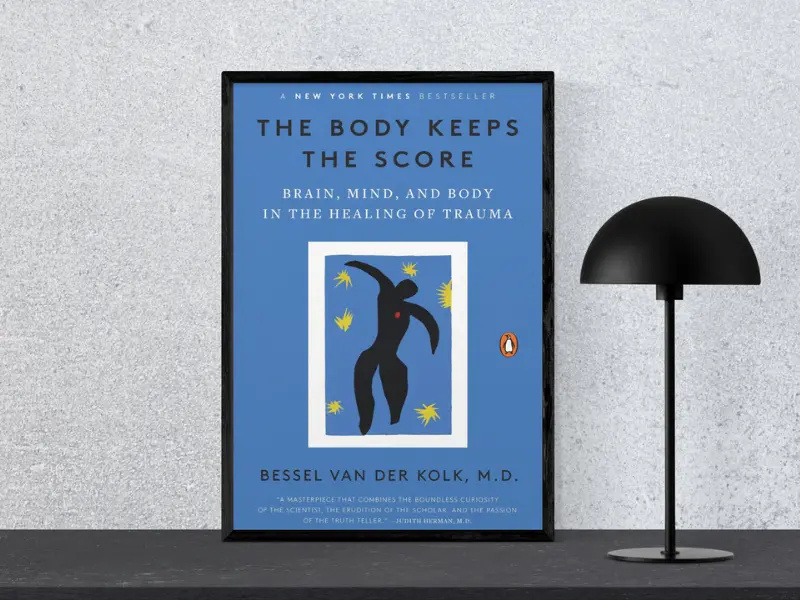
The Body Keeps the Score explains that trauma is not just stored in the mind, but in the entire body. When someone goes through a traumatic experience, their brain gets rewired. This affects emotions, memory, and how they respond to stress. But the most important point is that talking alone is not enough for healing. The body also needs to be involved. Techniques like yoga, EMDR, and breathwork help the body release stored pain. Safe relationships and creative expression also speed up the healing process. This book empowers survivors to understand their trauma and take an active role in their healing journey.
Three Key Lessons from the Book:
- Trauma changes the brain and body: It affects how people feel, think, and react. Healing needs to address both the mind and the body.
- Talk therapy is not enough: Physical practices like movement, breathwork, and body awareness are essential to release trauma stored in the body.
- Connection heals: Safe relationships, community support, and creative outlets like art or music help rebuild trust and emotional safety.
2. Maybe You Should Talk To Someone by Lori Gottlieb
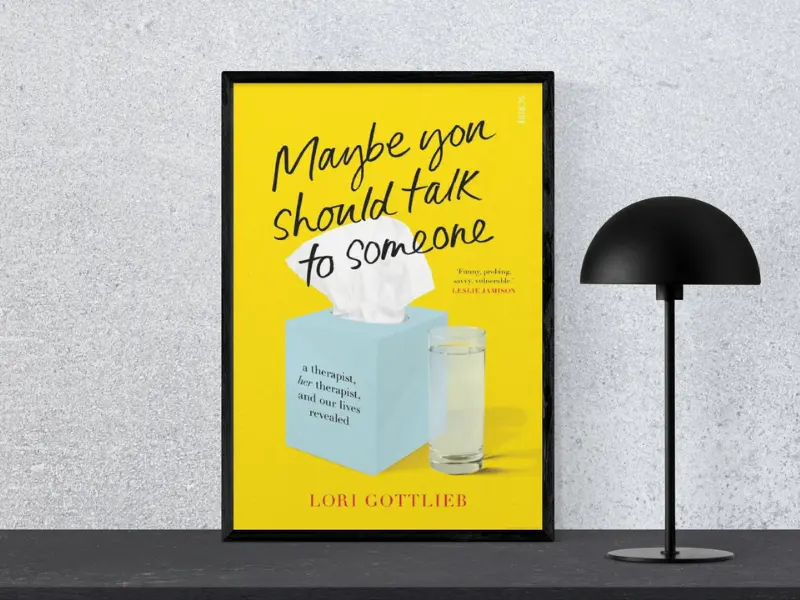
Maybe You Should Talk to Someone is an honest and emotional memoir where therapist Lori Gottlieb shares her own healing journey alongside the stories of her patients. When she goes through heartbreak, she starts therapy herself—and through that process, she realizes that whether we are therapists or patients, everyone needs someone to talk to at some point. The book shows that therapy is not just a way to solve problems, but a mirror that helps us see our emotions, patterns, and relationships so we can learn to heal them.
Three Key Lessons from the Book:
- Therapists are human too: Even those who help others need help themselves. Vulnerability is not weakness—it’s part of being human.
- Everyone struggles in their own way: From cancer patients to newlyweds to depressed writers, the book shows that pain doesn’t follow one shape. Compassion matters.
- Therapy is about self-discovery: It’s not just about fixing problems—it’s about understanding who we are, why we feel what we feel, and how we can grow.
3. The Happiness Hypothesis by Jonathan Haidt
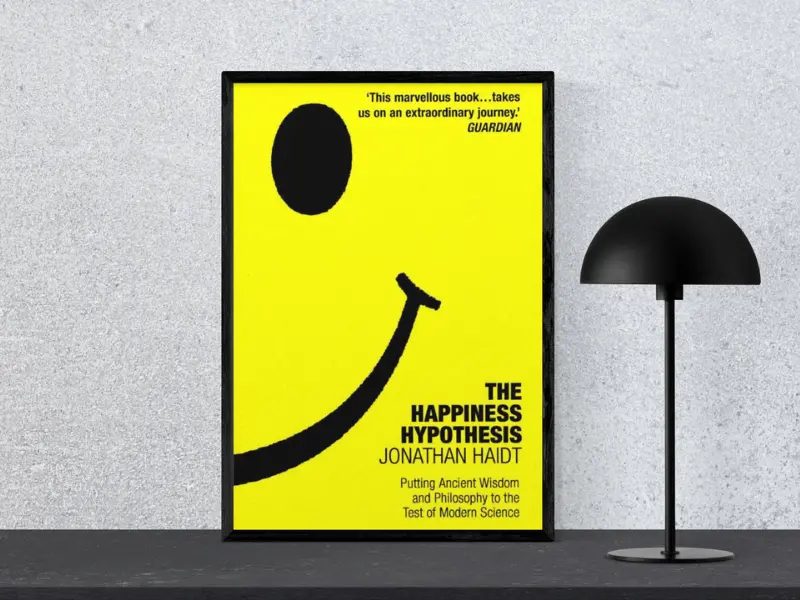
The Happiness Hypothesis says that our mind is like a rider and an elephant—the rider represents logic, and the elephant represents emotions. If we learn to understand and guide our emotions, we can lead our life in a better direction. Haidt blends ancient philosophies like those of Buddha, Plato, and the Stoics with modern psychology, and shows that happiness doesn’t come only from pleasure, but from meaning, relationships, and personal growth. The book highlights themes like gratitude, forgiveness, purpose, and resilience—showing that real happiness is an inner journey, not just outer success.
Three Key Lessons from the Book:
- Balance emotion and reason: True wisdom comes when we learn to guide our emotional elephant with our logical rider—not suppress it, but understand and work with it.
- Happiness needs meaning: Pleasure alone isn’t enough. Deep relationships, a sense of purpose, and personal growth are what truly fulfill us.
- Ancient wisdom still matters: Teachings from Buddha, Plato, and other philosophers offer timeless insights that align with modern psychology and help us live better lives.
4. Strangers to Ourselves by Rachel Aviv
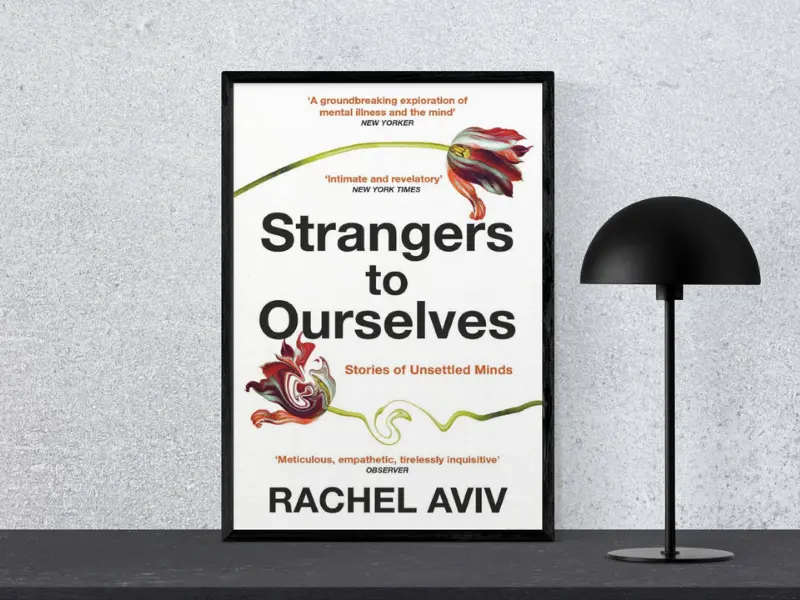
Strangers to Ourselves by Rachel Aviv explores the real-life stories of six people—including her own—whose mental health struggles deeply shape their identity and life story. The book shows that understanding mental illness requires more than just a medical diagnosis. We also need to understand the personal stories people create around their pain, confusion, and healing. Aviv reveals that psychiatry can sometimes help and sometimes harm, and every patient’s journey is unique. This book is a powerful reminder that we are all strangers to certain parts of our own mind—and healing begins when we start speaking honestly to those hidden parts.
Three Key Lessons from the Book:
- Mental health is personal, not just clinical: Diagnosis alone can’t capture the full picture. Each person’s story matters in understanding their struggle.
- Psychiatry is not one-size-fits-all: It can be life-changing for some and damaging for others. Listening to individual experiences is essential.
- Self-understanding is key to healing: We all have parts of ourselves we don’t fully know. Healing starts when we face those parts with honesty and compassion.
5. Thinking, Fast and Slow by Daniel Kahneman
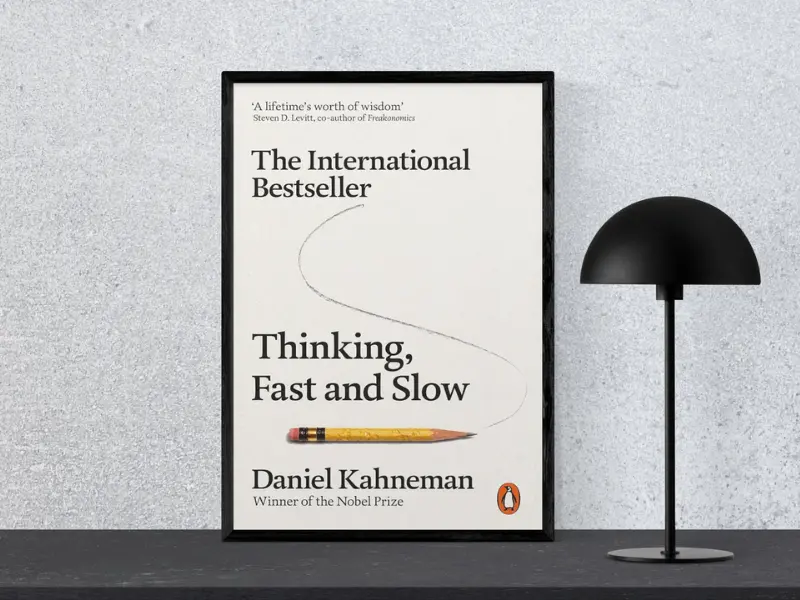
Thinking, Fast and Slow explains that our brain works through two systems. System 1 is fast, intuitive, and emotional. System 2 is slow, thoughtful, and logical. Kahneman shows that most of our decisions are made by System 1, which relies on shortcuts and is full of biases. Because of this, we often make irrational choices—like being overconfident, fearing losses more than gains, or being influenced by how things are framed. The core lesson of the book is: if we understand how our mind works, we can make better decisions—whether it’s about money, relationships, or leadership.
Three Key Lessons from the Book:
- We are not as rational as we think: System 1 often leads us to quick but flawed decisions. Recognizing this helps us pause and think more clearly.
- Biases shape our choices: Common biases like overconfidence, loss aversion, and framing effects can distort our judgment in everyday life.
- Awareness improves decision-making: By understanding how both systems work, we can train ourselves to slow down, reflect, and choose more wisely.
6. Ten Times Calmer by Dr Kirren Schnack
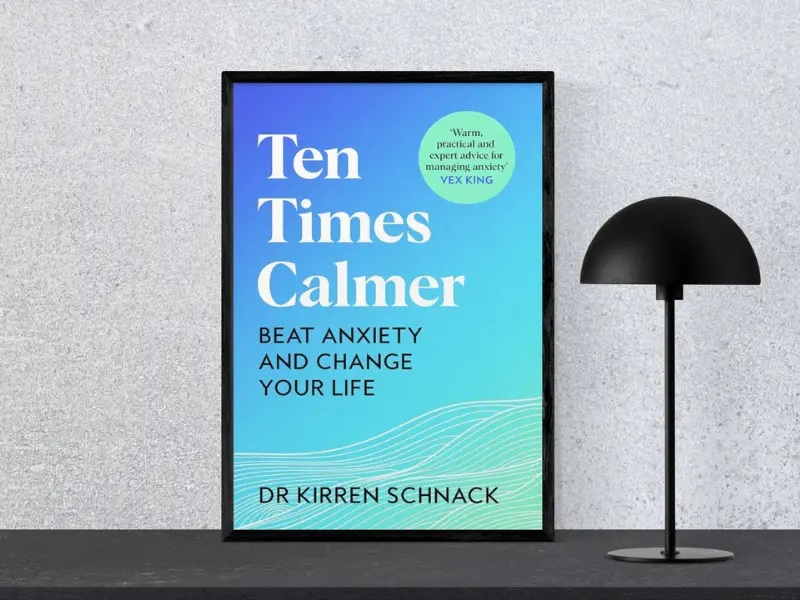
Ten Times Calmer teaches that anxiety is a manageable pattern, not a permanent flaw. Dr. Kirren Schnack explains that we can challenge our anxious thoughts and learn tools to calm the body’s alarm system—like adrenaline and cortisol. Techniques such as breathwork, reframing, grounding exercises, and self-compassion help us take control of our stress response. The biggest lesson is this: therapy may not be accessible to everyone, but calming tools can be. And when we start understanding our mind and body, that’s when we truly begin to feel ten times calmer.
Three Key Lessons from the Book:
- Anxiety is not your identity: It’s a pattern that can be changed with the right tools and awareness.
- Small techniques make a big difference: Breathwork, grounding, and reframing thoughts can calm the nervous system and reduce stress.
- Calm is for everyone: You don’t need expensive therapy to start healing. Simple, science-backed tools are available to all.